The Transat: Phil Sharp Completes Class40 Podium
Published on May 21st, 2016
(May 21, 2016; Day 20) – For some of the big multihull skippers The Transat bakerly was a most unusual race. Far from being a boat-breaking uphill test against storm force headwinds in the north Atlantic, they enjoyed a downwind romp more typical of races from Europe to the Caribbean.
But for others in the 24-strong fleet, the race lived up to its reputation as among the toughest in the professional calendar – a remorseless battle for boat and sailor against often horrendous sea conditions for days on end.
In the second category were most definitely the Class40s, the slowest boats in the fleet – not that they are slow in comparison to most ordinary cruising yachts. But the Class40s had no choice but to face the weather head-on, on the direct route from Plymouth to New York. For these skippers the option of heading into the deep-south was simply not available.
Britain’s Phil Sharp took on that challenge and sailed a remarkable race. A talented and proven trans-ocean racer who won the Route du Rhum in the class in 2006 – he was very late in his preparation for The Transat bakerly, stepping on Imerys for the first time only three weeks before the start.
Four days before the fleet set sail, Sharp missed one of the last major skipper’s briefings by race management because he had to travel from Plymouth to London to pick up his American visa in person. It was a last minute inconvenience that would have a big impact on his race.
Despite being rushed, Sharp set out to win The Transat bakerly and for much of the passage to Manhattan he was either leading or disputing the lead with the eventual winner Thibaut Vauchel-Camus on SoIidaires en Peloton-Arsep or Isabelle Joschke on Generali-Horizon Mixite, who eventually retired when her boat started taking on water.
Sharp pushed Imerys to the limits as he tackled the first big storm of the race and then subsequent depressions in the north-western Atlantic. Early in the race he paid for his absence at the skipper’s briefing when he failed to comply with race rules forbidding competitors to sail through the Traffic Separation Scheme off Ushant. But even a subsequent mid-race six-hour stop-go penalty did not stop him fighting back to the front.
In the end, however, the battle of attrition with the Atlantic and the relentless pace took its toll on Imerys and began to compromise Sharp’s performance. In addition to numerous minor gear failures, he had water coming in on a daily basis and spent hours bailing; he had charging issues; his forestay detached itself from the deck and then, in the final stages, his mainsail ripped in half, reducing it – as he put it – to little more than a flag.
He may have lost the battle for overall honours in the class but Sharp arrived in New York today the proud third-placed skipper on the Class40 podium behind Vauchel-Camus and second-placed Louis Duc on Carac. Sharp reached the finish off Sandy Hook one day, 11 hours and 48 minutes behind Vauchel-Camus. He had been at sea for 19 days and 31 minutes and had sailed a total of 3,798 nautical miles at an average speed of 8.32 knots.
On the dock he reflected on a tenacious performance and an experience that, he said, had changed him. “The race was always going to be tough, but I didn’t know it was going to be that tough,” he said. “The Transat has a history of extreme weather conditions, but we went through the worst conditions I’ve ever experienced and I think the Class40 fleet got hit the worst.
“The boat was quite new to me. I didn’t have long to prepare and I always knew it was going to be tough and I would have some issues, but I wasn’t expecting to have quite so many issues. I had a lot of problems with the sails and the weather out there was absolutely relentless. We got a hammering.
“I’m just so happy to be here in New York. There were a lot of things trying to stop us getting here, and even after the mainsail exploded I had power issues and the forestay became detached, so there was quite a lot going on to stop me. The fact I’m standing here right now and I’m on the podium, I’m very happy about indeed. It’s a good as result as I could have ever expected given the preparation time I had.”
Sharp added: “I feel in some ways that I’ve been to hell and back, but I’m a better person for it. It was a crazy race, but amazing and it’s made it that much more special to be standing here in New York.”
With the podium in Class40s now complete, there are still four of the original 10 starters in the class out at sea. The next finisher will be either Edouard Golbery on Region Normandie who is currently just over 100 miles from New York in fourth place or Robin Marais on Esprit Scout who is less than 10 miles behind him in fifth.
Event website – Tracker – Facebook
About The Transat
Twenty-five boats set sail May 2 2016 on one of the great races in solo sailing, the 3,050-nautical mile passage across the north Atlantic from Plymouth to New York. Alongside 24 competing skippers is a one-off entry by the French racing legend Loick Peyron who is sailing Eric Tabarly’s 44ft wooden ketch Pen Duick II in the same trim as she was when Tabarly raced her to victory in The Transat (then called the OSTAR) in 1964.
The OSTAR (Observer Singlehanded Trans-Atlantic Race) was created in 1960 by a handful of pioneering sailors. The race was organised every four years by the Royal Western Yacht Club (RWYC) from 1960 through to the 2000 event, albeit with a lot of involvement from the French event organiser Pen Duick in the 90s, in order to cater for the demands of the professional campaigns that dominated the event.
After the 2000 edition, OC Sport stepped in to develop the event and acquired the rights to the professional part. OC Sport organised The Transat in 2004 and 2008, the 2012 edition was deferred at the request of IMOCA (the largest competing class).
The RWYC continues to organise a solo transatlantic race for Corinthian and non-professional sailors that is still known as the (O)STAR,. This race usually falls a year after the professional big boat race i.e. 2005, 2009, 2013, 2017. Both the amateur Yacht Club event and The Transat have the right to link to the history of the original race created in 1960, and to the rich history it has produced.
The first race was competed by just a handful of pioneering sailors including Francis Chichester and Blondie Hasler who coined the phrase: “One man, one boat, the ocean.” There has been tragedy, dramatic rescues and exceptional drama since the race began in 1960. Over time The Transat, as it is known today, has evolved and now serves the professional end of offshore sailing. But there are few modern day races that can reflect on such a long and outstanding history.
Monohull IMOCA 60 record: 12 days, 11 hours and 45 minutes set by Loick Peyron (FRA) on board Gitana in 2008. Multihull 60ft record: 8 days, 8 hours, 29 minutes set by Michel Desjoyeaux (FRA) on board Géant in 2004.
Source: The Transat


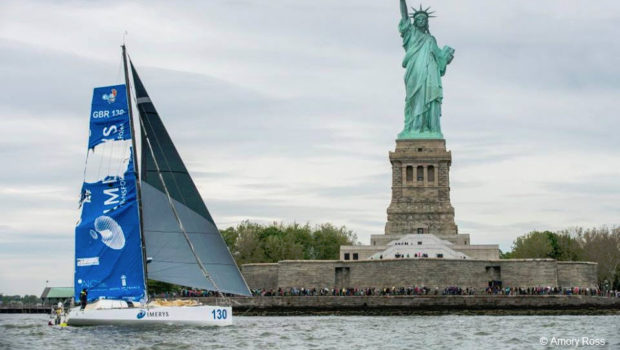

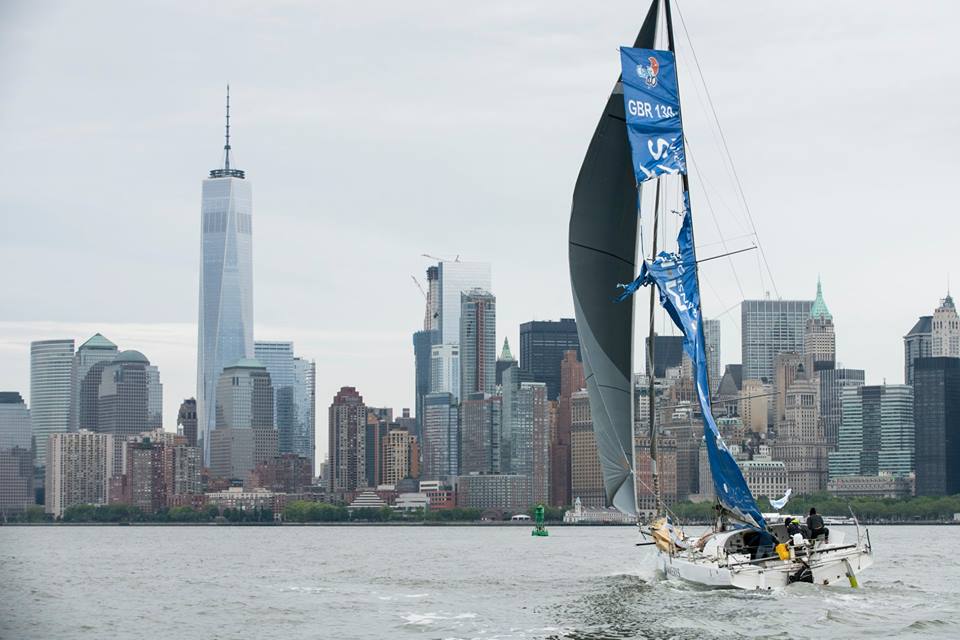
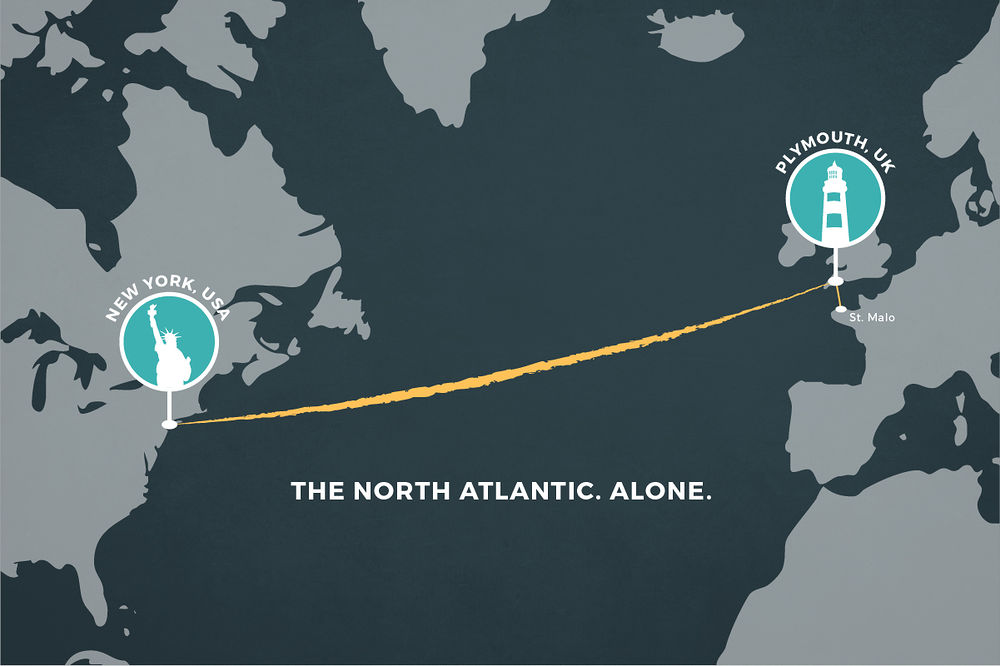

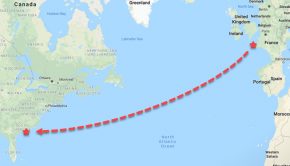
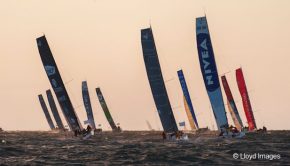
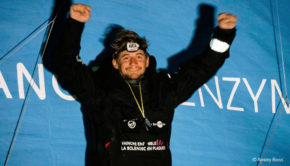

 We’ll keep your information safe.
We’ll keep your information safe.